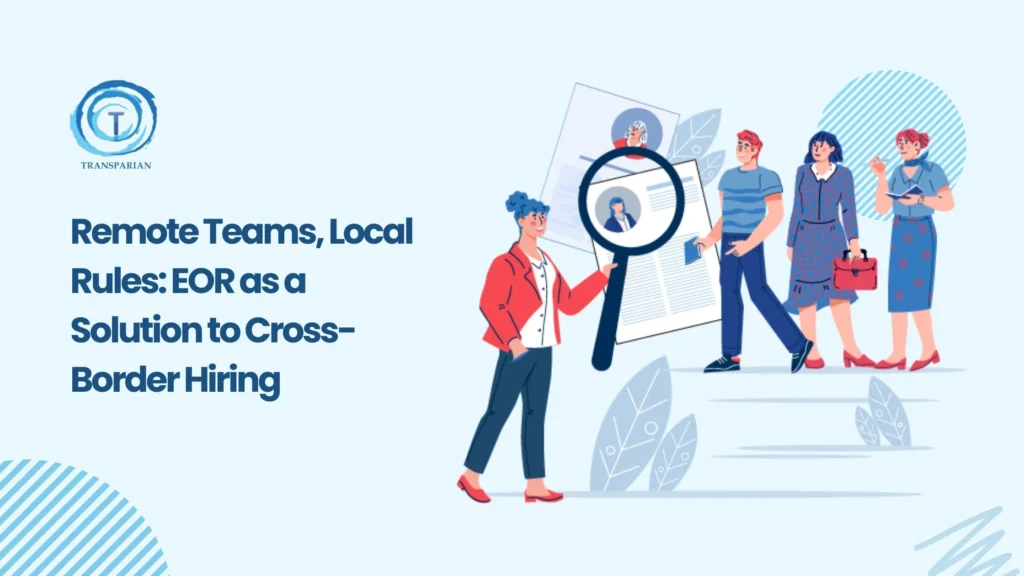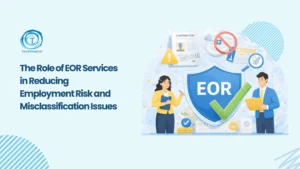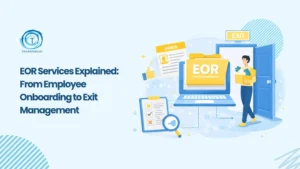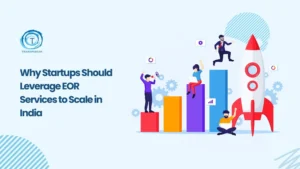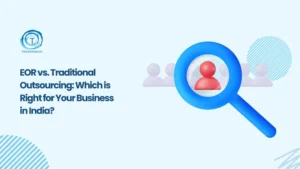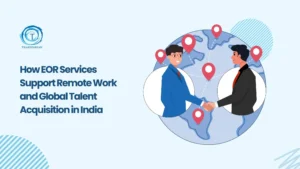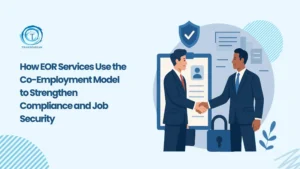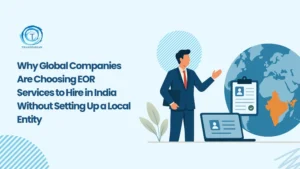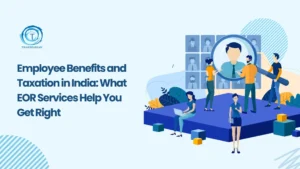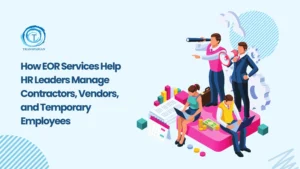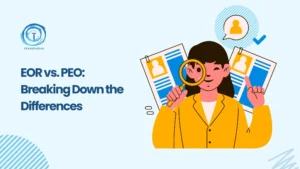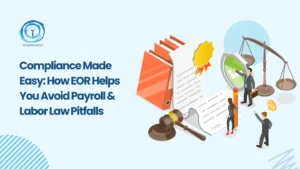In today’s increasingly globalized economy, companies are no longer limited by geography when it comes to building talent pipelines. Companies that require talented people worldwide will now be able to grow very fast without establishing foreign entities or going through legal frameworks by themselves. International staffing has become a demand yet it comes with pitfalls- legal, taxation, standards of compliance, and payroll complexities are not equal across borders. An employer of record is critical in this situation.
The rise of remote work, coupled with talent shortages in key industries, has accelerated the adoption of eor services by companies across sectors. From startups seeking niche expertise to enterprises scaling operations in multiple regions, an eor company enables efficient, compliant, and cost-effective expansion. By acting as the legal employer while the hiring company maintains operational control, global eor solutions bridge borders without the need for local infrastructure.
The Challenges of Hiring Across Borders
International expansion is not a matter of placing an advertisement on a web site to get responses in other countries. Each region possesses its labor laws, taxation policies and protection of employment that might make the hiring process difficult. Businesses must address:
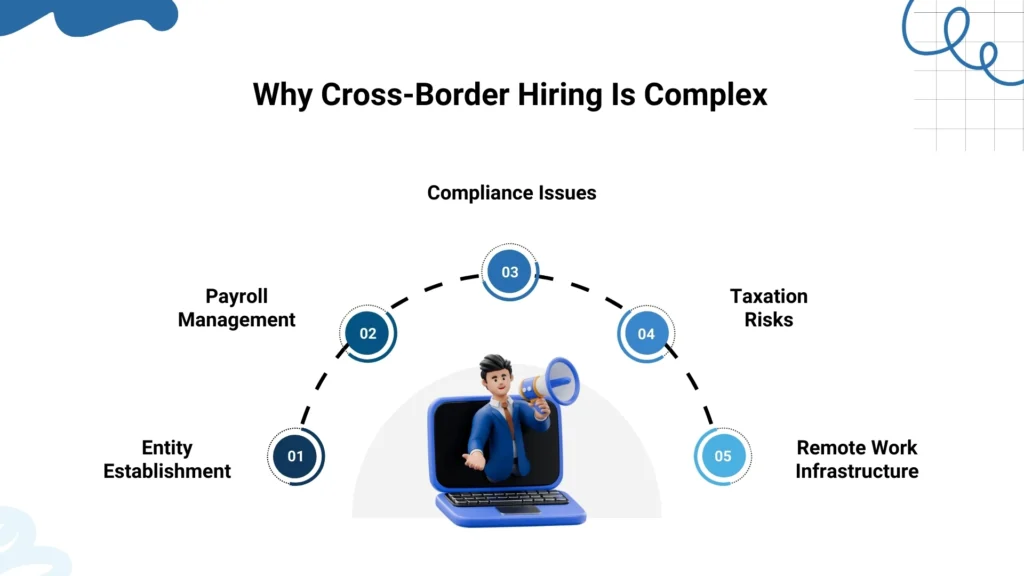
- Entity Establishment: Setting up local subsidiaries can be expensive and time-consuming, requiring capital investment, legal registrations, and dedicated staff to manage operations.
- Payroll Management: Paying employees across different countries involves handling multiple currencies, tax systems, and regulatory frameworks. Mistakes in payroll can result in fines or legal disputes.
- Compliance with Local Laws: From termination rules to mandatory benefits, labor regulations differ, and non-compliance can expose companies to lawsuits or penalties.
- Cross-Border Taxation: International tax rules around withholding, reporting, and double taxation are complex. Misunderstanding these can lead to costly errors.
- Remote Work Infrastructure: Managing a distributed workforce requires coordination tools, secure communication channels, and seamless remote team onboarding processes.
The traditional approach of establishing local offices or hiring through contractors is no longer sufficient for companies that want to scale globally without unnecessary risk. This is where entity-free hiring models powered by employer of record services become invaluable.
How EOR Helps with Cross-Border Hiring
Cross-border hiring is complex, but using an employer of record streamlines the process by handling operational and compliance-related challenges. Some of the major benefits are listed below:
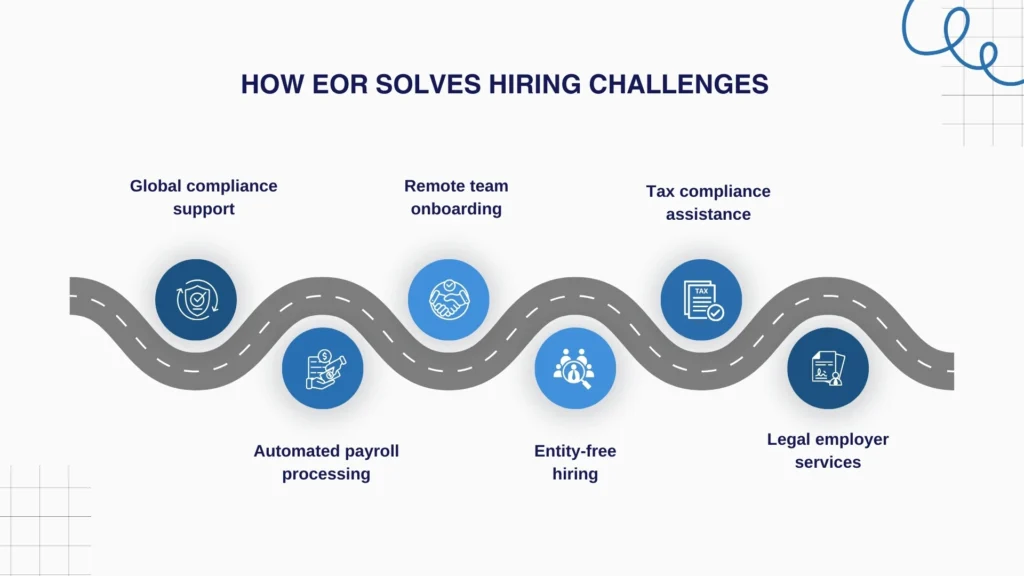
1. Global Compliance Made Simple
A significant pain point for companies hiring internationally is staying updated on changing labor laws, benefits regulations, and tax policies. A global eor is one that undertakes the duty of maintaining global compliance and helps in mitigating risks of employing workers in other jurisdictions. This will cover dealing with employment contracts, statutory deductions and reporting.
2. Seamless Remote Team Onboarding
Bringing a new employee on board remotely can be cumbersome when documentation, policies, and local labor laws differ. Remote team onboarding is simplified through remote eor solutions that provide structured onboarding kits, orientation, and assistance tailored to each jurisdiction. This ensures employees feel supported and integrated into the company’s culture from day one.
3. Payroll Automation Across Regions
Processing payroll in international teams means having to grapple with variable currencies, taxes and banking systems. With eor company, payroll automation, the payments are done correctly and promptly without the need to perform the calculations manually, which can eliminate the risk of non-compliance. It is also through computerized systems that businesses are able to come up with the required reports thus remaining transparent.
4. Entity-Free Hiring Without Geographic Boundaries
The establishment of a legal entity in the countries is a valuable resource and time investment. Entity-free hiring through employer of record services allows businesses to hire talent anywhere, without creating foreign subsidiaries. The model is especially useful when small businesses and startups seek to expand quickly.
5. Cost-Effective Global Hiring
The financial aspects of operating in the various regions is also significantly minimized when the firms are able to utilize cost-effective global hiring models. The businesses with the assistance of an eor company can escape the initial cost of legal establishment, recruitment, insurance and benefits administration.
6. Managing International Tax Compliance
Navigating cross-border tax compliance can be a complicated process, particularly to a business that lacks local knowledge. Employer of record solutions enables the reduction of risks by providing alignment of tax filing, deductions and reporting with local tax codes. This will guard against fines and make the expansion strategy smooth.
7. Legal Employer Services for Peace of Mind
One of the greatest advantages of utilizing legal employer services via an employer of record is that firms can trust professionals to handle employment agreements, employee benefits, dismissals and conflicts. With such support, businesses will not be subjected to unexpected liabilities during cross-border hiring.
Navigating Key Compliance and Risk Mitigation
One of the major pain points in hiring across borders is misclassification risk, accidentally treating a contractor as an employee, or vice versa. EORs offer transparency where local expertise facilitates workers to be categorized in the right place. Risks associated with labor law, taxes, and privacy of data are prevented.
Another issue is the risk of permanent establishment: When a distant team surpasses some of its operations footprints, a company may fall prey to the local taxation. EOR structures can prevent such traps and make roles clear, thus business growth does not incur any undesirable liabilities.
More than Payroll: LSI Use Cases for EORs
In addition to payroll and compliance, advanced EOR services provide value to the employee lifecycle:
- Global HR Software Integration: EOR platforms often sync with global time tracking, performance management, and project management systems, centralizing HR data and workflow.
- Benefits Administration: Employees receive market-standard health insurance, retirement plans, and statutory leave coverage regardless of location.
- Visa Processing & Global Mobility: Managing remote workers is easier with support for visa applications and relocation, combining legal expertise and local contacts.
- Cost-Effective Global Hiring: Rather than absorbing costs for legal entity setup, compliance audits, and unforeseen penalties, businesses enjoy transparent employee billing typically a flat monthly fee per worker.
Areas Overlooked: Coverage Gaps in Traditional EOR Content
While the mainstream coverage of EOR focuses on compliance and onboarding, several strategic topics remain underexplored:
Long-term Transition Planning: How do businesses move from EOR contracts to full local entity establishment as teams grow? The answer involves complex planning, careful risk management, and staged compliance transitions, crucial for companies scaling rapidly.
Regional Challenges and Solutions: The EOR content tends to gloss over high-complexity areas such as Africa, Eastern Europe or Southeast Asia, where subtle workforce regulations or unstable legal environments pose special difficulties to cross-border recruiting.
Multi-EOR Provider Strategies: While businesses often rely on one provider, leveraging multiple global EOR companies can offer agility, risk mitigation, and tailored regional expertise.
Industry-Specific Uses Cases: Industries such as healthcare, fintech, and education have an added regulatory strata. Niche material discussing how EOR platforms navigate these complexities would assist decision-makers to adopt the appropriate model to their industry.
The Must-Know Advantages of Modern EOR Solutions
With seamless cross-border hiring and advanced governance, organizations gain:
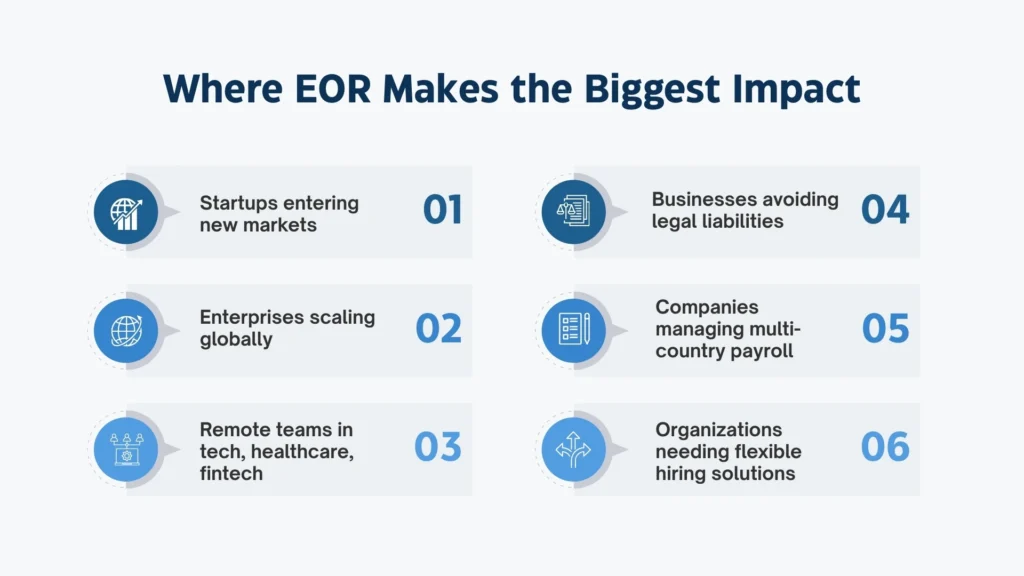
- Scalable hiring across continents, accessing specialized skills in hard-to-reach markets.
- Automated compliance with regional updates as labor laws evolve globally.
- Employee lifecycle management, from digital onboarding and compliant payroll automation to smooth offboarding or market exits.
- Reduced risk exposure due to constant legal monitoring and expert local advisors.
- Employee engagement tools, cultural integration support, and dedicated account managers for ongoing success.
The Future of Cross-Border Hiring with EOR
As organizations increasingly embrace remote-first policies and global talent acquisition strategies, hiring across borders will continue to grow in complexity. Navigating diverse legal frameworks, tax systems, and cultural differences will demand robust solutions that balance agility and compliance.
An employer of record offers a strategic advantage by allowing businesses to expand without geographical constraints, automate payroll processes, and maintain cross-border compliance with ease. Whether scaling operations, onboarding remote teams, or ensuring tax and legal obligations are met, eor services empower organizations to build agile, compliant, and high-performing teams worldwide.
By intelligently applying global eor approaches and prioritizing the well-being of their staff, employers can be confident of engaging in cost-effective international recruitment, accessing talent pools in other countries and reducing risks and the administrative overheads.
FAQ’s
Hiring across borders involves complex labor laws, tax regulations, payroll management, and compliance requirements. An EOR simplifies these processes and reduces legal risks.
Yes. EOR services enable startups and SMEs to hire globally without setting up foreign entities, saving time, money, and reducing administrative burdens.
EOR providers stay updated on labor laws, taxation policies, benefits, and employment contracts, ensuring that companies remain compliant across regions.
EOR platforms automate payroll processes across multiple countries, handling currency conversions, tax withholdings, benefits, and reporting to avoid errors and ensure timely payments.
Industries like healthcare, fintech, education, and technology benefit from EOR services due to their stringent compliance requirements and global talent needs.
Without an EOR, companies risk misclassifying workers, violating labor laws, incurring tax penalties, and facing legal liabilities that could disrupt global expansion efforts.

